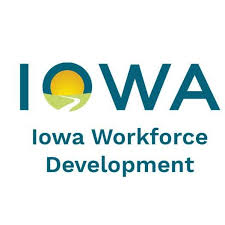Corporate and personal income taxes open for debate
Gov. Terry branstad ignored taxes in his condition of the state speech, but lawmakers could launch a dialogue

Let’s talk taxes.
Though the Iowa Legislature took a big leap over the decades-old property tax hurdle in 2013, there are some folks who believe 2014 is a good time to at least begin the discussion of making changes to the state’s corporate and income tax policies.
One tax bill is on the table, but chances are it won’t get much further. Last year, the Iowa House of Representatives passed a bill that established a flat tax rate of 4.5 percent on personal income. House Speaker Kraig Paulsen, a Republican from Hiawatha, said the bill included protections that would have eliminated the tax burden for low-income families. That bill went nowhere in the Democrat-controlled Senate, and it is doubtful that legislation establishing a flat tax would generate much enthusiasm this year.
Still, Paulsen said he would like to get the ball rolling. So would Senate President Pam Jochum, a Dubuque Democrat, but probably not in the same direction.
Sen. Joe Bolkcom, a Democrat from Iowa City, is working on what Jochum described as middle-income tax relief. Both legislative leaders say there is little doubt that 2014 will be the year to at least launch a discussion on tax policy.
Sure to be targeted is federal deductibility. Individuals can deduct 100 percent of what they pay in federal income taxes from the portion of their income subject to state income taxes. Corporations pay a rate of 6 to 12 percent on the net revenues earned within the state. However, they can deduct 50 percent of their Iowa taxes from their federal tax bill.
The issue of federal deductibility has swirled around tax debates in Iowa for several years.
Jochum said business leaders in eastern Iowa wish the conversation would disappear because it interferes with their ability to attract and retain businesses.
If tax laws are changed, she said, they should be altered to reflect the actual rates paid by Iowa businesses.
Will change occur this session? Gov. Terry Branstad made no mention of income taxes during his Condition of the State address.
“I would like to have another bill to send over (to the Senate),” Paulsen said.
Jochum isn’t making any bets. On the other hand, the Legislature has shown it can make great strides.
“I know when we started the session last year, there were a lot of naysayers who said we weren’t going to accomplish anything, but we accomplished almost everything that people said we would never get accomplished. So never give up hope,” she said.
CONSUMABLES
Another tax issue, one that might be easier to resolve, is a clarification of the definition of consumables used in the production of finished products, which are then taxed when they are sold.
In Iowa, equipment, machinery and parts used in manufacturing are inputs that are not taxed. However, the Iowa Association of Business and Industry said there needs to be some clarification in the definition replacement parts and other consumables, such as oils, greases, hydraulic fluids, coolants and lubricants so that they are expempted from sales taxes.
The Iowa House passed a bill last year and sent it to the Senate. Speaker Paulsen said he thought the issue had been resolved. Not so.
A fiscal note accompanying the bill said the state could lose $60 million to hundreds of millions of dollars, Yochum said. The Senate balked because of that discrepancy and experts have spent the last several months working on a resolution. In the Senate there will be some output on the legislation once the definition of inputs is resolved.









